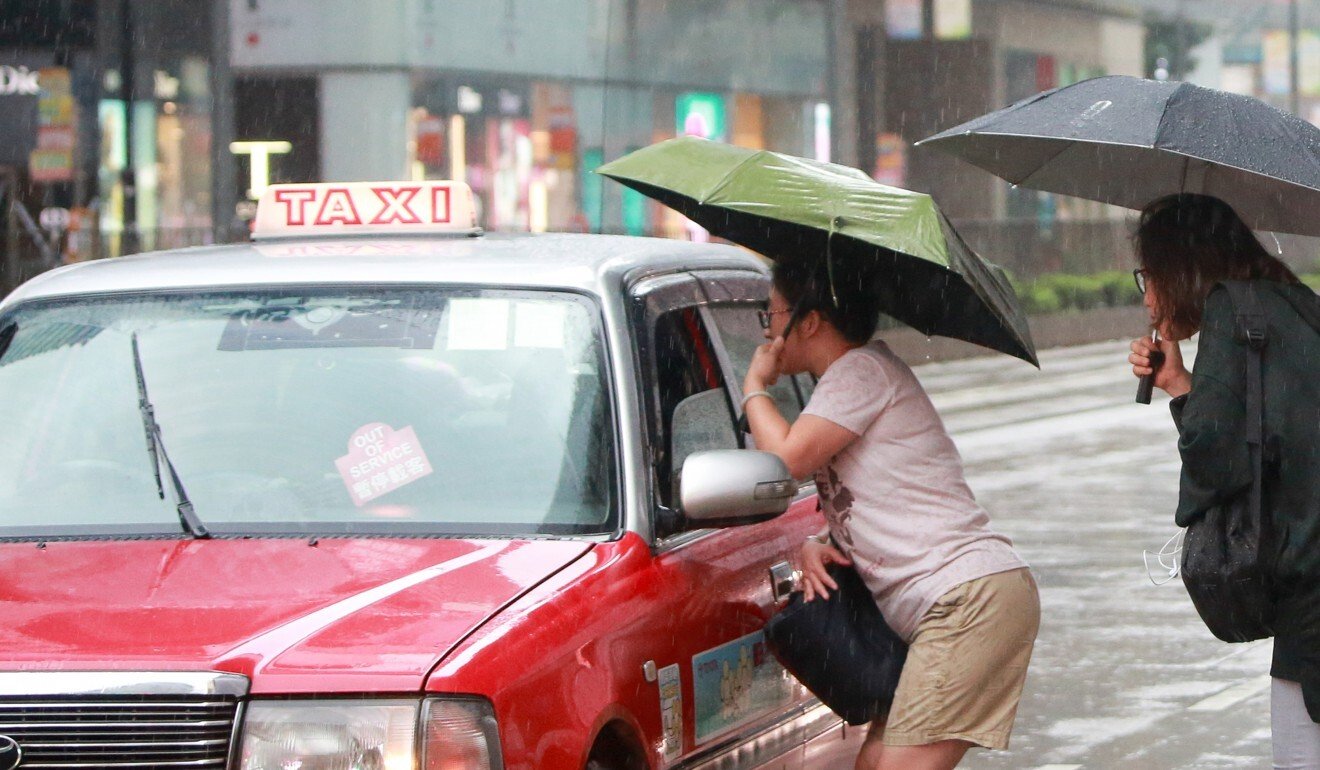
Exclusive | Hong Kong taxi operators strike back at Uber with plan to introduce fleet of premium six-seater cabs
- Operators expect strong demand, as big groups often prefer to call a large Uber car than hire two taxis
- Commuter group says bigger taxis are fine, but city’s badly behaved cabbies need to shape up too
If the government approves the plan, they are prepared to roll out about 500 of the minivans for pre-booked trips, charging 50 per cent to 75 per cent more than normal cabs.
Chau Kwok-keung, founder of Jumbo Taxi and one of the main operators driving the effort, told the Post the group was convinced there was a “big demand”.
“It is evident from the growing trend of people calling for illegal Uber rides when they go on a family trip with more than four people. They’d rather pay more for Uber than take two taxis,” he said.
Most of Hong Kong’s 18,163 taxis seat four, with about 3,000 able to take five passengers.

Chau, who runs about 600 taxis, said Uber offers a variety of vehicles, including seven-seaters, and many passengers choose the ride-hailing firm over cabs when travelling in groups larger than four.
“By rolling out six-seater taxis, we hope to offer another choice to passengers, and improve the competitive edge of the taxi industry. We aim to win back lost customers who turn to Uber and other illegal rides,” he said.
Although Uber has been in Hong Kong for more than six years and is popular with residents, it is operating illegally, as their drivers do not possess the hire-car permits required to carry passengers.
Its continued operation has long been a thorn in the side of the taxi industry, which has protested repeatedly that Uber has stolen its business and threatened the livelihood of cabbies.

Chau’s group will need the Transport Department’s approval to introduce its new taxis. There are two models available – Toyota’s Noah Hybrid, and Nissan’s Serena e-Power. They cost about HK$500,000 and HK$360,000, respectively.
The group, which has been lobbying transport officials through transport sector lawmaker Frankie Yick Chi-ming, said it was encouraged to hear recently they might be given the green light.
A Transport Department spokeswoman, however, said only that the government had noted some in the taxi industry were exploring the merits of using larger taxis, including six-seaters.
“The government will continue to maintain close communication with the trade and other stakeholders, and listen to their views in an open manner, in order to formulate appropriate and feasible measures to enhance taxi service quality,” she said.

Chau’s group has said it is ready to introduce the new taxis by the end of this year or early next year if they get approval.
That proposal would have allowed three franchises to operate a total of about 600 premium taxis offering electronic payment and Wi-Fi, with fares 50 per cent higher than those of normal cabs.
It was a response to perennial complaints about Hong Kong’s taxis, especially drivers who are rude, overcharge, cherry-pick passengers and take circuitous routes.
Quentin Cheng Hin-kei, a spokesman for commuter concern group the Public Transport Research Team, said improving taxi service by offering more choices to commuters was always a good move.

He also believed there was demand for the minivans, and that people would be prepared to spend more for the bigger cabs. But he pointed out that cabbies need to fix their bad behaviour if they hoped to win back customers lost to Uber.
“The biggest turn-off is their rude attitude to customers,” he said.
Among those in Chau’s group is Peter Yung, founder of taxi-hailing app XAB, which has a fleet of 15 four-seat premium taxis. He is keen to salvage the tarnished reputation of the city’s cabbies.
“I often come across customers who ask if our cabs can accommodate more passengers,” he said. “It made me wonder, if Uber can offer a six-passenger ride, why can’t we?”
Yung, who spent more than HK$10 million raised from investors to launch his company in 2018, said he would be prepared to roll out at least 50 six-seaters if the group’s proposal was approved.
He said he saw it as a chance to revive the taxi industry and attract new blood to a sector plagued by an ageing workforce.
Chan Man-keung, chairman of the Association of Taxi Industry Development, also welcomed more ways to improve the city’s taxi services, including adding six-seaters.
“It’s good to have more taxi models for passengers to choose,” he said.

